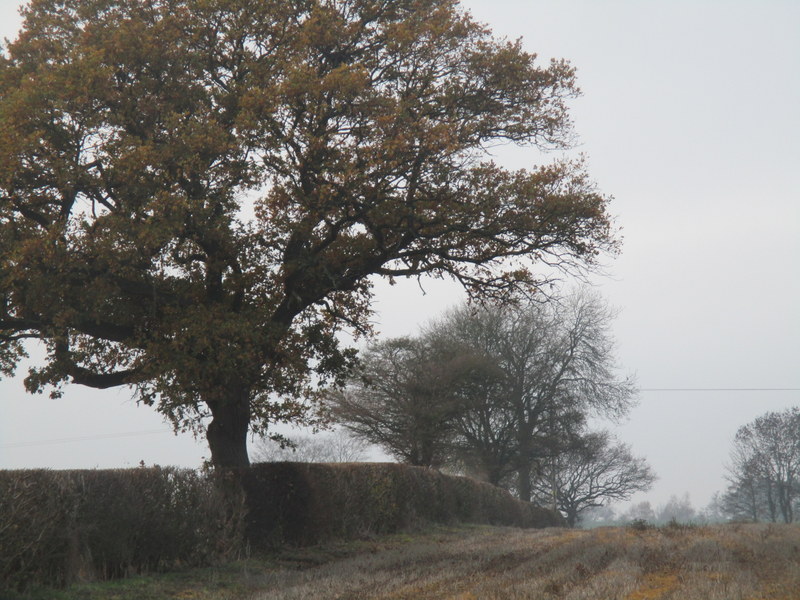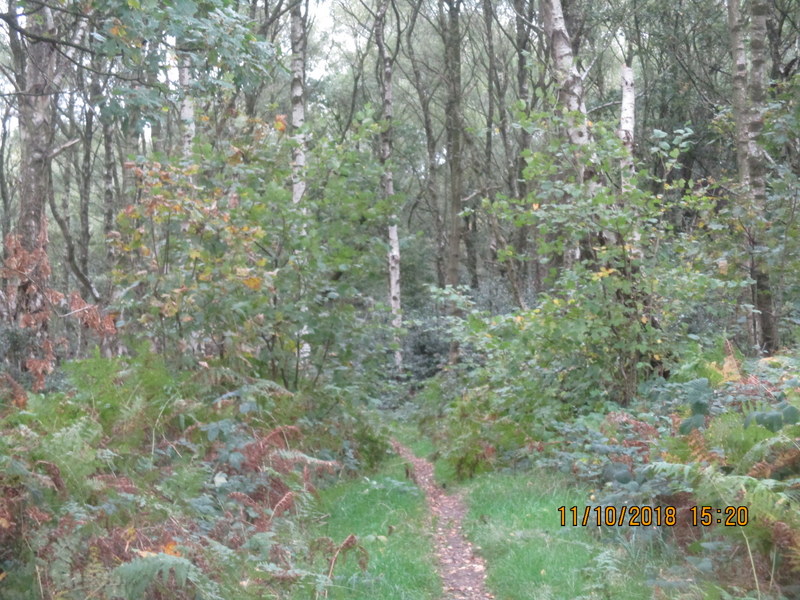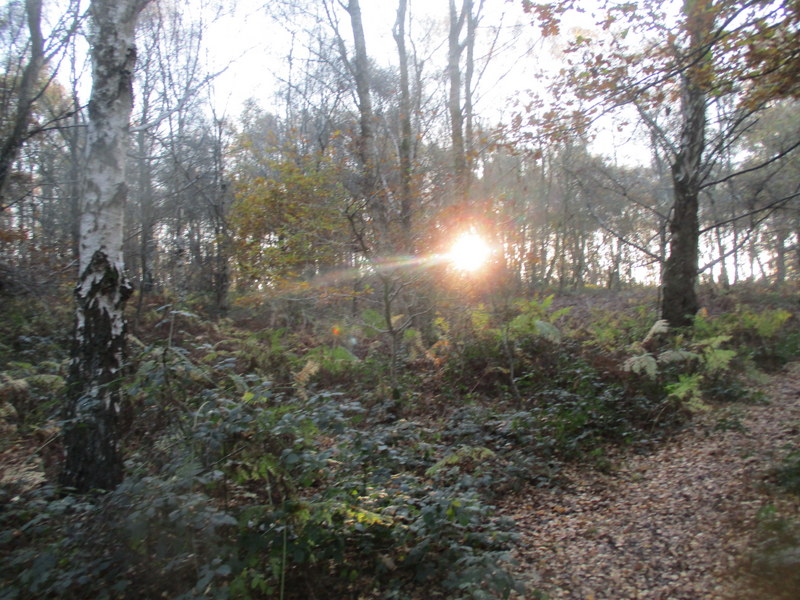'The State of Independence ---- '
Seasonal weather ---

Their engines are covered and 'tucked up' in covers of old jackets, which must help to keep the damp out of them, as they then start a lot easier after a lengthy quiet time. The leeks planned to grow this next year in the tunnel will have to probably go in the top glasshouse next to the tomatoes, leeks now being virtually impossible to grow in open ground due to the regular alium leaf miner fly strike.
December is 'down time', giving the ol' body a bit of a rest. A bit of 'semi-hibernating' is quite pleasant, feeling like the pressure's off for a bit. Still quite a few 'small' jobs to go at and of course the regular routine jobs such as bringing in the wood have to be done. Then come January, weather permitting, it'll start to get busy-ish again, the first job being to process the big pile of loppings produced by the extra autumn lopping activities. Should be quite a lot of burning wood from the processing, with the 'trash' then being burnt in a good fire to produce lots of ash, both a potash fertilser and a useful alkali addition to the ground to 'keep it sweet' (i.e. stop it getting too acid, which can happen with continuous growing).
The other minor activity at present, part of the physical exercise programme prompted by the heart angina attacks of a couple of years ago, is to dig in the 'green manure'. This is mainly weed growth through the back end and is a productive and satisfying job, not only fertilising the soil but also preparing the ground for next year's crops. It's a 'new start', hopeful type of feeling, and there's something about seeing freshly dug ground - does the soul and the spirit good ---- . Then in the New Year there'll be the usual job of topping the sycamore hedge alongside the compost heaps - a 'triple whammy' type of job - solving the hedge problem, then producing pea-support sticks, which are then brittle by the end of the season, in time then to be used as kindling to light the woodstove - can't be bad. Then, come February, it'll be the job that really does kick off the new cycle - putting the woodash and the compost onto the growing ground - with 'hope in the heart, springing eternal --- '
'The state of independence --- '
As commercial influences seem to be pretty pervasive in modern strongly materialistically-geared cultures, the 'social norm' seems to be 'man as an avid consumer' ( someone who borrows quite a bit (living beyond means - ? and has a love of money ----) even though this presumably can't sit over-comfortably with environment degradation ---- and according to those 'in the know'. the environmental scientists, in recent reports, the planet is at 'the last chance saloon' in terms of irreversible damage being done to it.
Surely only a pariah would now stand up and shout 'but I don't want to be a millionaire/billionaire' - ? - but which in fact might yet be a sane option considering according to another recent report, wealthy people are seeking therapy due to the stress caused by anxiety brought on by worry concerning where they are in the 'wealth league table' ---- Still, marginally better presumably than the worry brought on by the worry involved in wondering where the next meal's coming from --- -- Various authors (egs. Stephen Levine - A Gradual Awakening, Michael Foley - The Age of Absurdity, and recently supported by Clint Eastwood ) have pointed out that the individual has been undervalued, disempowered and 'weakened' by modern 'largist' culture, which tends to venerate size and power.
The point is surely that the state of individual independence may then be fairly weak, with such a deal of 'social norming' occurring, reportedly not helped by avid screen and social media use. Could, though, 'money love', be mis-placed affection - ? Money came into being as a useful medium of exchange (it was proving difficult to for A's bootmaking service to 'trade' with with B's thatching service, for pretty obvious reasons). Money came along and solved the conundrum pretty well - until, that is, the 'love of money' took hold, and some might argue that this has caused quite a few problems ---- Good, though. to keep things in some perspective -- ?
Yet such is society, and people have to live in it, and are affected and influenced by it, and if 'money love' is, say, a sort of 'mass virus', then they stand a fair chance of being infected - ? Maybe then, it could be good for the brave souls who do feel the call of the 'independent spirit', 'freerangers', who are also maybe D.H.Lawrence's 'thought adventurers', to be able to take action(s) to fend off and/or counter over social norming pressures, then being better able to 'follow their own path', then to reap more life fulfilment. The great man, Buddha himself, was a 'freeranger' supporter :
' No-one saves us but ourselves. No-one can, and no-one may. We ourselves must walk the path' ( Buddha )
Presumably, though, being a man of compassion, he'd be ok with people getting a little help along the way --- ?
'Nurturing independent spirit ---- '
One way of self-support for the individual against all the potential cultural-based 'pressure', to help foster individual strength and spirit, could be to undertake self-reliant type of activities (one or two 'live' examples of self-reliant lifestyles are given below) These could involve quite a range - from individuals living self-reliant wilderness lives in Alska, to the urban family in the UK midlands, who whilst feeling a little restricted in terms of ability to take eco-friendly action, then realised they could play their part by minimising their contribution to landfill, a policy they very successfully carried out.
As so often, sane and sensible action can be the antidote to negative situations or mindsets, and there's potentially quite a range the individual can take up, if they've a mind to - : self-build projects, writing a journal, volunteering for 'passion' work (eg. conservation work), growing own food, self-mechanic-ing , 'challenge' leisure activities (eg. mountain climbing), craft work, painting/writing, meditation/mindfulness activity, eco living, downsizing (eg, moving to a less expensive area releasing housing capital to, for instance, pay off debt, and maybe taking lower paid but more amenable work), early retiring, campaigning, walking 'in nature', local politics work, part-time enteprises - no doubt the list could be virtually endless -----
Early retirement, for instance, offers the scope for independence for some from being in working situations that don't particularly suit, either due to, say, the nature of the work, the style of management or poor employee conditions and rights, or both/all. It's been noted that the style of managing staff in the UK in recent times has often aligned with the 'theory X' approach, which is a low participative style emphasising managerial authority and control, sometimes linked to exploitative practices, such as long working hours, heavy use of demanding work targets and non-allowance and recognition of employee rights and organisations (one national chain of retailers, for instance, reportedly introduced 'anytime' body searches for staff, which if not actually contravening actual human rights laws, seemingly contravened civilised humane behaviour to others - ?) One route open to some to escape unconducive work situations, becoming then independent of them, is then the early-retirement mode, then either to take up more amenable work or self-occupy the time, maybe in independence-fostering self-reliance activities - ?
Live case-studies :
One or two examples of actual 'independent lifestyle' choices :
T and G both worked at a college, got together and pooled resources to just about afford to buy a fairly run down country cottage that had the advantage of a large-ish garden. They lived for several months in a caravan on site whilst they worked in their spare time doing the cottage up, but getting in specialists such as electricians and plumbers to do the specialist work. At the same time they managed to get part of the garden planted up with an array of vegetables and set up a small laying flock of hens. Then, having done the building renovation work, and with a family on the way, they assessed their situation, then making the decision for one of them, T, the impending mother, to willingly give up work and concentrate on home production, giving them reduced but adequate cash income, along with as they saw it, enhanced quality of life.
After a year or two they were able to then acquire more adjacent land, so then expanded home production to a fair size veg growing area plus a couple of milking cows (the calves from which were not weaned, to give both 'natural' lives for the animals and to cope with the more than adequate supply of milk, plus, as needed, to supply 'built-in' relief milkers). The reduced income gave them limited access to such things as expensive holidays, cars and the like, but both felt that their interesting 'd-i-y' self-reliant lifestyle more than compensated for any lack of 'luxury items', which anyway they didn't particularly feel the need for -----
'Big A' was/is an imposing individual with a 'biker' type appearance, who reckoned he was born with an independent spirit. He lived with his partner and small son in a cottage heated mainly by a woodstove, A being generally able to get good supplies of wood from his numerous farming contacts. He'd developed an interesting 'portfolio' self-employed independent-lifestyle which matched his extensive range of skills. For three/four months a year, for instance, he supplied skilled tractor operative skills to a range of farmers, keen to have the extra skilled help at peak busy periods and happy to pay well for it. 'If I 'ad to drive a tractor for the whole year', he'd say, 'it'd drive me flippin' bonkers, but as it works out now, I enjoy it'.
He's a keen home veg grower, again not going short of well-rotted muck for his patch, courtesy again of his farmer contacts. As a younger man, he'd completed an agricultural engineering course, hence his tractor driving skills. A had built himself a fair size shed at his place and for the rest of the year undertook a couple of types of small engineering projects. He was in demand to complete small-scale fabrication work, having developed quite a name for himself as a reliable and inventive 'value for money' operator. He also undertook small-scale agricultural and garden machinery repairs, again earning a useful reputation as a reliable operator giving good value for money.
'Mostly, things do work out and get done but now and again things do get a bit hectic and ah find meself all in a mucking fuddle', he'd say. Not least perhaps, because he also kept one or two local old girls heating systems working in exchange more often than not, for a homebaked cake. A very useful guy to know, and close to a model citizen - but just don't go and tell him that -----
D worked as a skilled engineer fur a largish outfit, having moved there from a smaller family type firm.
'I got quite a bit more money but didn't take to the quite aggressive management style of the bigger firm, which also seemed to demand ever more from me. In the end life became fairly unpleasant, and I'd had enough so decided to quit. I decided to give self-employment a go as a handyman/small builder, as I had useful d-i-y skills. I can't really believe how well it's gone - my policy of giving good quality for reasonable charges, which suits my style, seems to have worked very well, judging by the waiting list I've got. And it's really great to be able to get on with the job without someone breathing down my neck all the time.'
' A micro-holder (guess who?) was able to retire early and have a go at 'paddling his own canoe' , even though on-going financial viability looked a little precarious ( an actuarily-reduced lower pension due to early retirement was taken ). As there were a few years to go before the state old-age pension kicked in, the plan was to take part-time work to ensure a viable level of income, which apart from one winter six-month period, worked out, helped of course by the more economic living costs the micro-holding lifestyle provided.
There was then still a useful amount of 'free' time to follow the independent interests of enjoying the smallholding lifestyle more fully and putting a few words together about the style of life and in support of the 'freerange' approach to life. 'Even though a later career move from farm advisory and consultancy work to lecturing in a university college gave me a reasonable degree of autonomy to follow my own research interests, this last phase of being totally self-directed and motivated has been a good opportunity to independently follow my personal interests', now says this anonymous micro-holder -------
'Going independent ----- '
Whilst 'going independent' can at times involve a bit of risk taking, it can also work out, as above, quite well. One of the potential 'conflicts' can be of the 'heart v. head' variety, as going independent can often open up the chance to make a business or a living out of an interest/ passion. In the farming industry it was sometimes sad to see in advisory work, new farming entrants with bags of 'passion' ('heart') for the job, still come unstuck due to lack of attention to business viability needs via adequate business planning ('head'). The following sequence can be of some use : 'Heart' (passion, interest, motivation) >>> 'Head' ( planning to ensure a viable enterprise/lifestyle route) >>> 'Will' (to surmount the challenges 'along the way') - then to taste those thrilling 'fulfilling fruits' of the independent lifestyle ------



Comments
1 response
1 accounting freelancers // Jul 11, 2019 at 1:41 AM
& it helped me out a lot. I hope to give something back and aid others
like you aided me.